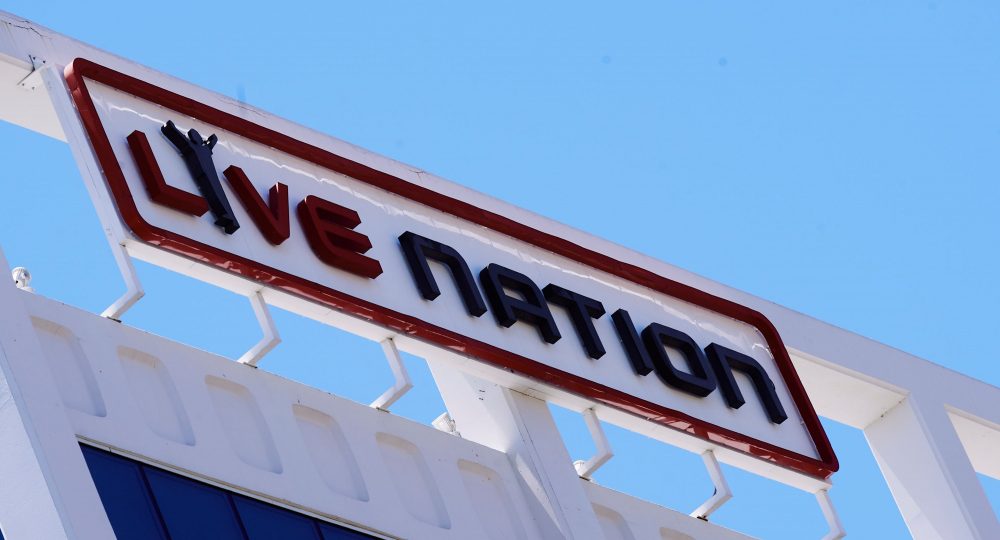Live Nation posted robust results in an earnings report encompassing the full 2022 year and its fourth quarter released Thursday, and looks ahead to a blockbuster 2023 amid ongoing government attention to its Ticketmaster division after the debacle surrounding last fall’s on-sale for Taylor Swift’s stadium tour.
On a very busy Thursday for the company, it also launched the FAIR Ticketing Act in an effort to combat excesses in the secondary ticketing market, and plans to release a statement in response to one issued earlier in the day by Senators Amy Klobuchar and Mike Lee, who led last month’s controversial Senate hearing on the ticketing industry.
Details of the FAIR Ticketing act can be found here, but broadly speaking, its main tenets state that “artists should decide resale rules,” which would be an effort to allow artists to take the lead in preventing exploitative prices on the secondary market; “make it illegal to sell speculative tickets,” addressing scalpers’ habit of tricking fans into buying tickets that do not yet exist; “expand the BOTS Act,” to combat the widespread use of ticket-buying bots on the secondary market; “crack down on resale sites that are safe havens for scalpers,” which would force secondary-market sites to police the activity on their platforms more aggressively; and “mandate all-in-pricing nationally,” which would address the processing and other fees that often are not revealed until very late in the sale process.
While idealistic in ways, these measures, if enacted as stated, would address at least some of the very legitimate complaints that have been leveled at Ticketmaster and the ticketing industry overall in recent years.
Moving on to the earnings report, Live Nation’s year-end results for 2022 were formidable, with revenue up 44% to $16.7 billion over 2019, operating income up 125% to $732 million and adjusted operating income up 49% to over $1.4 billion.
Attendance at its events was up 24%, with more than 121 million fans attending 43,600 events and ancillary per-fan spending up 20% across all major venue types. Its sponsorship revenue is up 64% to around $1 billion, and its ticketing fee-bearing gross transaction value is up 54% to $27.5 billion.
Driven by such major forthcoming tours by Beyonce, Taylor Swift, Bruce Springsteen, Madonna and others, its outlook for 2023 is even stronger, with concert ticket sales over 50 million, up 20% with international up 25%; ticketing fee-bearing gross transaction value up 33% to $9.8 billion; and committed sponsorship for the year up double-digits, with over 70% of 2023 revenue committed.
In his letter to investors, Michael Rapino highlighted the results from the company’s embattled but highly lucrative Ticketmaster division, noting, “We grew our fee-bearing ticket volume by 28% from 2019 to 280 million, which in turn drove our fee-bearing [gross transacted value] up by over 50% vs 2019 to $28 billion across 38 countries. As a result, our ticketing revenue was $2.2 billion, up 45% vs 2019. Along with these results for the year, we signed 23 million net new tickets in 2022, 70% of which were with international clients, setting the stage for continued global growth.”
Addressing the monopoly accusations around the company, he added, “On the regulatory front: The ticketing industry is more competitive than ever, and our market share has gone down, not up, since the Ticketmaster merger. Because of the competitive bidding process, venues regularly take more of the economics on every renewal, as they set and keep a majority of the service fees. Since signing the extended consent decree related to the Ticketmaster merger, we remain in constant conversation with the Department of Justice’s monitors, and do not believe there have been any violations.
Regarding ticketing reforms — and clearly referencing the debacle surrounding the Taylor Swift “Eras” tour on-sale, which left many fans waiting online for hours without receiving tickets, as well as the still-booming secondary market — he continued, “We believe that greater transparency on the entire ticketing ecosystem will improve the industry, and we have been engaging with policymakers to advocate for reforms. The biggest challenge facing the industry is chaos at the onsale, where fans cannot get the tickets at the price the artist sets, yet they see pages of secondary sites with tickets 5 times face value because of scalpers. This has been a big topic in the industry and conversations at the Pollstar Live conference this week focused on how to protect the connection between artists and their fans.
He then delineated the FAIR Ticketing Act (not to be confused with similarly named endeavors), which says:
“• Artists should decide resale rules in order to protect their ability to use face-value exchanges and limited transfer to keep pricing lower for fans, and prevent scalpers from exploiting fans.
• Selling speculative tickets should be illegal so scalpers cannot use deceptive tactics to trick fans into spending more or buying tickets the seller does not actually have.
• The scope of the BOTS Act needs to be expanded and enforced to deter those who break the law, cheating artists and fans in the process.
• And there needs to be industry-wide all-in pricing so fans see the full cost they are paying up front.
“Artists create their music and their concerts,” Rapino concluded. “It’s only fair that they create their ticketing rules, too. We will always be on the side of the artist, who are the best advocates for their careers and their fan base.”
From Variety US































